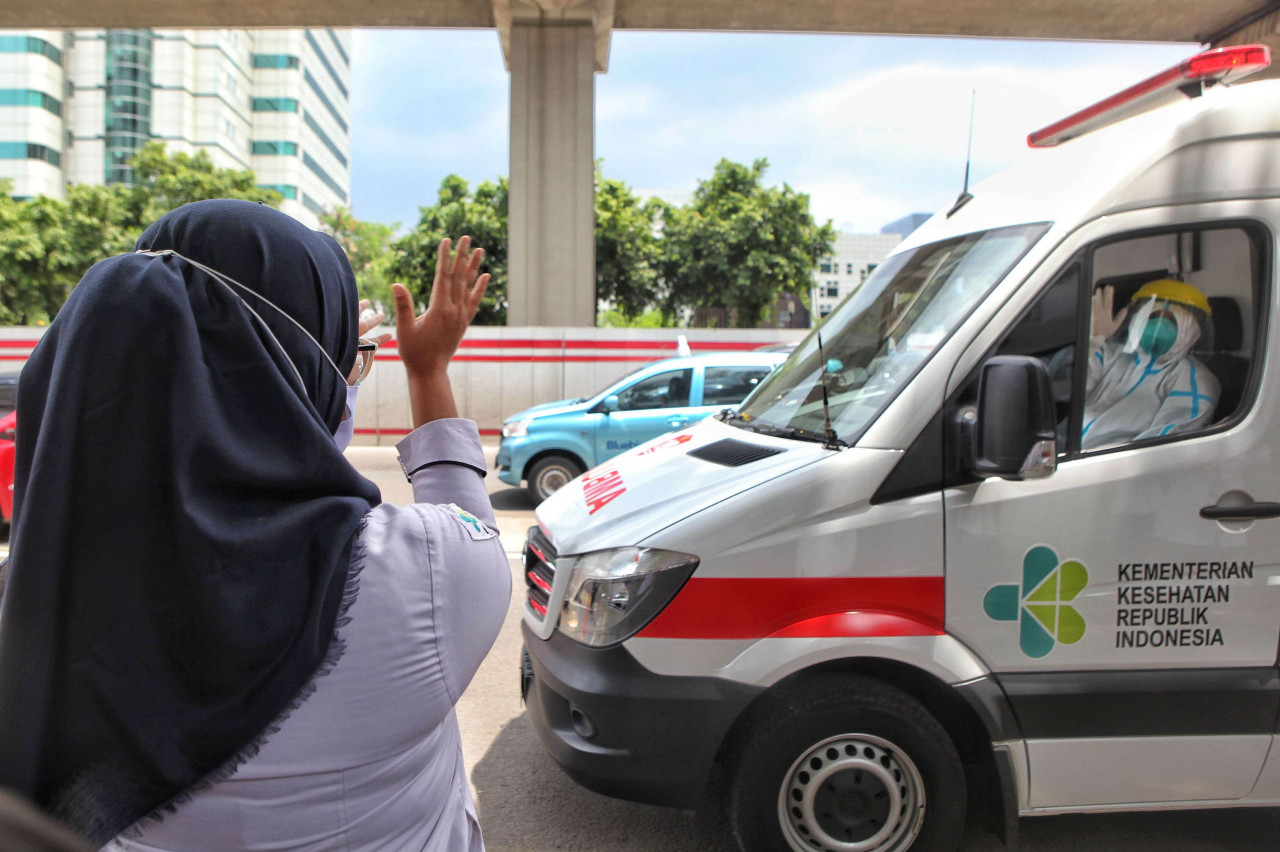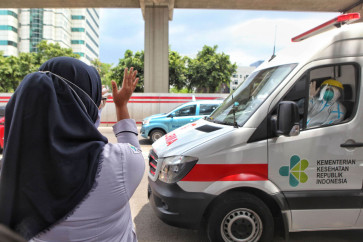Popular Reads
Top Results
Can't find what you're looking for?
View all search resultsPopular Reads
Top Results
Can't find what you're looking for?
View all search resultsAnalysis: Govt, House push to pass health bill, unfazed by opposition
Change text size
Gift Premium Articles
to Anyone
T
he passage of the omnibus health bill into law appears set to take place this month, notwithstanding a recent delay in the House of Representatives plenary vote.
The postponement of the vote to July 13, from the initial date of June 20, provides another small window for the bill’s critics to continue their opposition. The Indonesian Medical Association (IDI) has led the fight from outside the House, as it seeks to maintain its role in the issuance of medical licenses, which the bill would revoke.
As the substance of the legislation has become clearer, the IDI, now backed by many more civil society groups, has a new narrative of its protest. The narrative has shifted from criticizing the bill for undermining the quality of health workers and health services to criticizing the removal of mandatory spending of 5 percent on the health sector from the state budget and 10 percent from local administrations’ budgets.
The Civil Society Coalition for Health Access Justice has said the removal of mandatory spending will negatively impact vulnerable communities such as the elderly, disabled people, women and those living in the remote areas with regard to access to health services, which is protected under the existing Health Law.
Apart from the IDI and the coalition of civil society organizations, the political parties in opposition to the current administration, such as the Islam-based Prosperous Justice Party (PKS) and the Democratic Party, also opposed the passage of the omnibus health bill. The PKS mentioned that the omnibus legislative method had resulted in rushed legal processes, while the Democratic Party supported the mandatory state spending quota, which it said helped ensure the public’s access to health care.
The continuing protests by health workers, ongoing criticism and the number of civil society organizations that have spoken out against the bill demonstrate the scale of the backlash. However, the rapid progression within the policymaking system – from the Health Ministry giving the problem inventory list to the House and the speedy deliberation of the bill by the House’s working committee and government representatives to the plan of holding a plenary session to pass the bill into the law –shows that the government and the House are unfazed by the heightened opposition to the bill.
What’s more



















